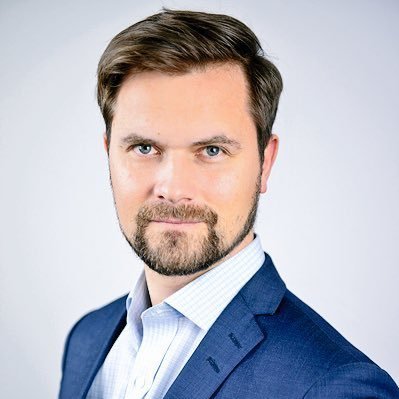Just steps from the Vatican, the 3rd International Bioethics Conference—organized by the Jérôme Lejeune International Chair—gathered experts from around the world to explore science, truth, and the ethical challenges of contemporary medicine. This year, Cardinal Willem Jacobus Eijk, Archbishop of Utrecht, Netherlands, was among the key participants.
In a conversation with EWTN Vatican Bureau Chief, Andreas Thonhauser, the Cardinal offered reflections on the dignity of life, the role of the family, and the place of human reason in today’s culture.
FIND THE POPE'S BIOGRAPHY HERE
“Theology and philosophy are not considered a science, scientific. But theology and philosophy can yield real metaphysical truth, but you have to recognize it. And for this, of course, you have to rediscover the true meaning of human reason. That means that life has an intrinsic value. And not only an instrumental value on the basis of empirical philosophy, you cannot discover the essence of things being things, the truth concerning moral, norms, and moral values. It's impossible. For this, you have to recognize that human reason is capable of knowing metaphysical truth.”
The Jubilee of the families is happening also, right now, here in Rome. Many families will be coming to the eternal city also for their own pilgrimage, through the Holy doors, here during this Holy Year. What is your recommendation for a family today? How do they stay together? How is it possible to lead a good family life?
“It's really important to foster family life. Many members of the family are living as individuals with their own networks. I think it is very important to have for instance common meals, because during meals, parents talk with their children. But then they can teach their children. A free, big part of education is given during meals. When people are not eating together anymore in the family, you lose these important moments.
“And I think what is very important for family is common prayer. Praying together, before the meal, after the meal, the beginning of the day, at the end the day, like we did in the past and that, of course, will help young children to form a personal relationship with Christ that will, you know, give them a Christian formation, a Christian education, and therefore, you give them a free solid foundation for a future life. Because when you pray with your children, also in their adolescent stage, many people choose the religion, or the philosophy of life that they'll have for the rest of their lives during adolescence. And then we have to be present with our transmission of faith.”
What role does the family play for the Church?
“I think a very important role, because you know, the first teachers of religions are not priests, or teachers at schools, but their parents. When they are faithful, they're going to church. They bring their little children with them. Also, when children do not understand yet what is going on in church, they feel the sacrality of the atmosphere. They see everyone praying, they see their parents praying, and that's an example. We should give it to our children. And therefore, I said, during preparatory courses for marriage, we have to teach young couples how to pray, because then they can teach it to their children. And that's very important that young parents talk with their children about faith and that they pray with their children, because then they will help them to be true followers of Christ.”
Your Eminence, thank you so much for your time with us.
“Thank you. And God bless.”
SIGN UP FOR OUR NEWSLETTER HERE
Adapted by Jacob Stein
Produced by Andrea Manna; Camera by Sergio Natoli, Gianluca Gangemi; Special thanks & Credits to Patristic Institute Augustinianum

Andreas Thonhauser is EWTN Vatican Bureau Chief. He holds an MBA from WU Executive Academy and a Master’s in German Philology and Americanistics from the University of Vienna. He previously worked in media and as Director of External Affairs for a global human rights organization, and for several media outlets in Vienna, Austria.









